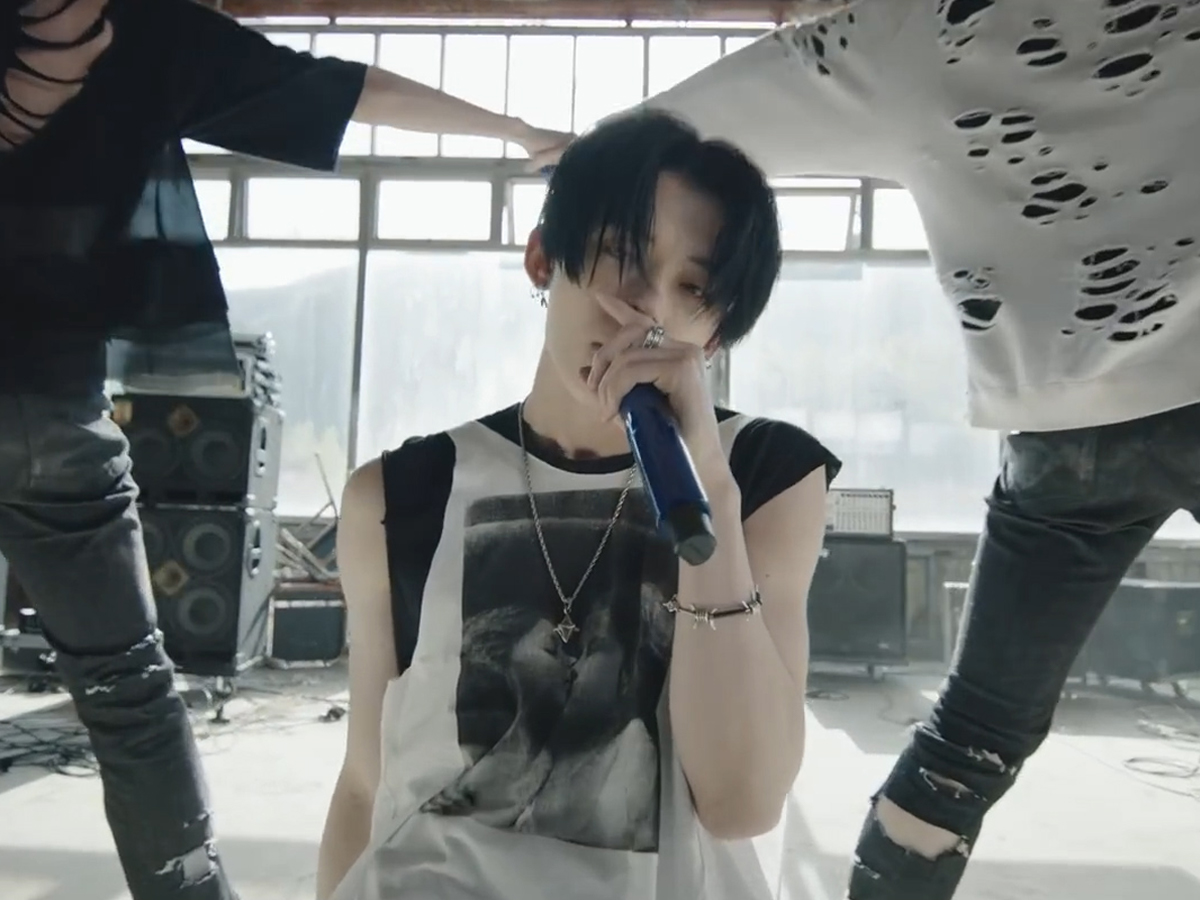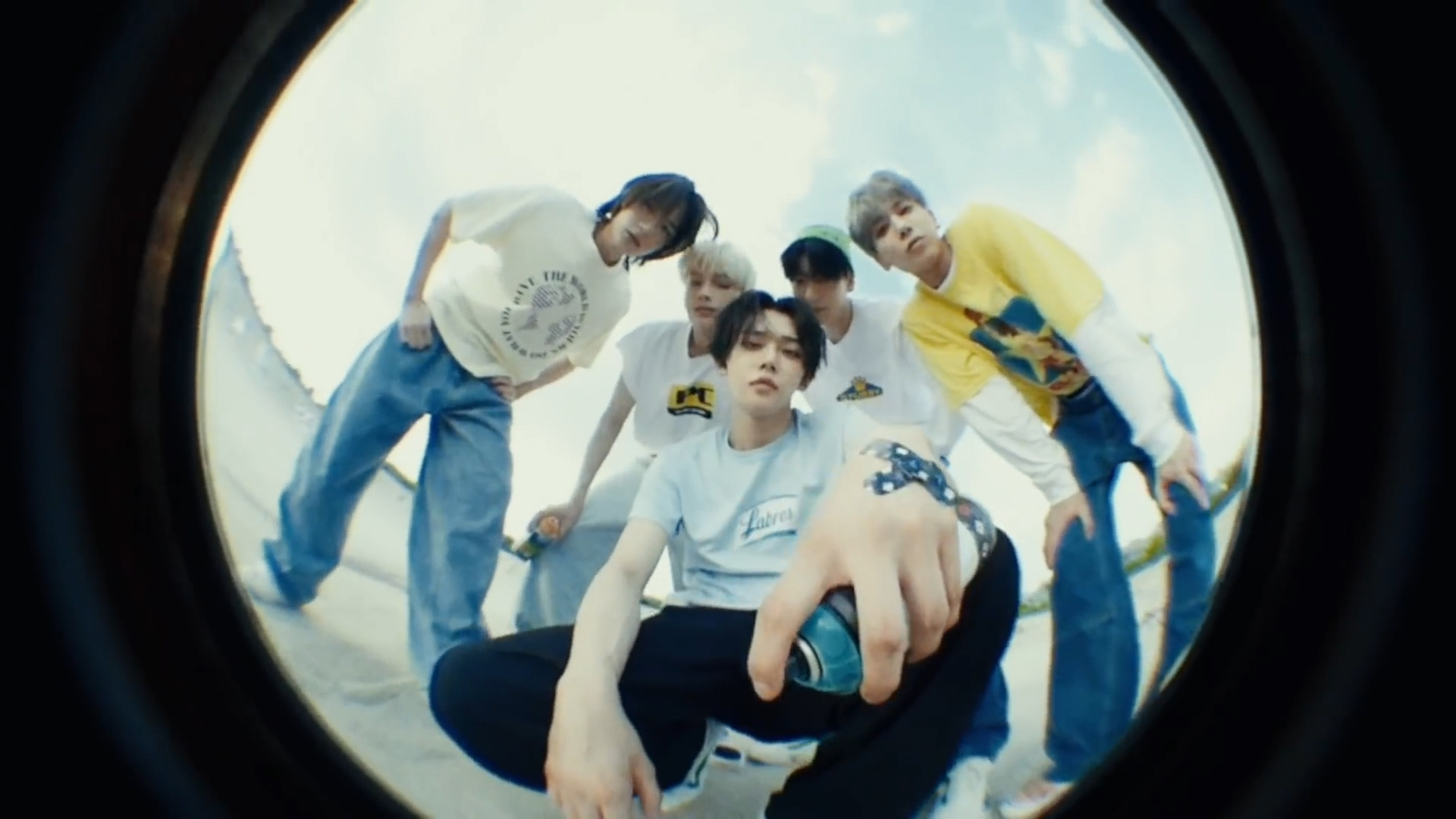
For those presently confronting the exhaustion of youth head-on, the unconditional praise it receives is a subject of regular ridicule. How many will remember their most youthful days for what they were, exactly as they looked and felt? Beneath the facade of the so-called brightest time of life, it follows on the speaker’s whim, fluttering this way and that as a mere shell of itself. To those who kept eyeing two rabbits and lost both, youth is freedom. To the middle-aged who begin every sentence with, if only I were 10 years younger, youth is opportunity. To those who firmly believe youth is youth if, and only if, accompanied by pain and suffering, youth, because it’s painful, is youth. It’s a funny story. Axiomatically, “we were all young once” is not wrong; the anticipation, however, that youth will take on the same shape for everyone, goes beyond naivety and enters the into realm of ignorance.
It’s difficult to fashion idol pop around the concept of youth as it's utterly impossible to draw conclusions about all its different varieties. Nothing could be easier, of course, when it’s approached one-dimensionally, because this superficial cross section of youth glitters just by nature of it existing. The radiant energy of the perfect young body, once finished forming all its new cells, proves that the saying “those who shine don’t need a spotlight” is more than simply a figure of speech. From that perspective, youth and idol pop, where “while we’re young” prevails above all else, make good buddies. At least on the surface, that is. The same goes for the world of TOMORROW X TOGETHER. The youthful energy that they had drawn up, easily and nominally substituted with the word “fresh,” seemed to be something, relatively speaking, readily and clearly understood. The moments of graceful melodies flowing together with the boys’ voices overtop a crystal-clear pop soundscape were their own vivid azure lights born at the intersection of idol pop and youth. The Dream arc encompassed all of this; of course, when one thinks of youth, the word “dream,” illustrative of the period, innately comes to mind.
But if you were to look into the matter a little closer, you’d see that something is different. The path that TOMORROW X TOGETHER had chosen was, in fact, a voluntary detour. The cost of turning away from the easy route was nothing to scoff at. They pushed themselves in order to paint an image of adolescence as close to the original form of youth as possible. More specifically, their aim was the origin of youth—not the version of youth that has suffered a whittling down at the hands of so many people until losing its essential quality, but one that can be felt only by those who are piercing right through the very heart of adolescence with every inch of their body. That endeavor began to feel like a strain at times. Let’s discuss the most immediately defining feature of TOMORROW X TOGETHER: their long and complicated song titles. In 2019, as soon as I heard that the lead single of The Dream Chapter: STAR, the group’s debut release, was “CROWN” (but in Korean, literally, “a horn grew out of my head one day”), I wondered if this represented the new generational zeitgeist. Yet that was only the beginning. Their preoccupation with cryptic, code-like titles has continued right on into the present, including with the song “0X1=LOVESONG (I Know I Love You) feat. Seori” off their recent album, The Chaos Chapter: FREEZE.
Whether we’re meant to see this as tradition or tenacity, it was no longer merely the people far past their own youth who felt lost when faced with these stubbornly long, barely decipherable song titles. There were even the occasional murmurs inside the K-pop scene, a place suffering from concept and fictional universe addiction, asking whether they were overdoing it. But looking back now, I feel like these almost outrageously complex titles may have been a kind of unspoken barrier. In short, the titles essentially acted as the sign one might affix in front of their hideout, be that under their desk or in the attic, as a child: Only those who crack the code may enter.
The boys, adventuring on without fear in the face of such riddles encountered a form of youth that was not so sweet as expected. TOMORROW X TOGETHER’s world of Dream and Chaos was a place where anxiety and worry, not love and joy, were widespread. As represented by the horns, the pointed perception of the realities of being different from others, and the strong desire to have colleagues with whom to share it with, naturally led to overshadowing darkness and mild depression throughout their universe. This sentiment, lending itself easily to the moniker “moody teenager syndrome,” leaves open the possibility for an interesting interpretation where it has a peculiar rendezvous with the boys’ real adolescence in the same timeline. This is because, for Generation Z—commonly said to be digital natives—the characteristic most strongly felt by their generation is, effectively, collective depression. Gen Z, who inherited traits such as individualism, the pursuit of diversity, and pragmatism from Gen X—their parents’ generation—but weren’t given sufficient grounds to exhibit those traits as much as they want to, suffer every day from an unhealthy obsession with reality and minor depression, even now. They can’t help but sneer at talk of youth as being the brightest time of life or a fortune.
The reason TOMORROW X TOGETHER have been able to stay in their orbit without incident and not become trapped in a maze of abstract ideals of reality and habitual depression is, above all else, because of their unique exquisiteness. Even in the deepest darkness, unable to see an inch in front of their faces, they always end up finding brief flashes of light without fail. Moments like when they leave the blazing sun and endless final exams behind them with the silvery Milky Way and golden season spread out before their eyes (“Our Summer”); the magic to alter the very definition of the “time between dogs and wolves” at the boundary where orange and blue skies meet (“Blue Hour”); the wistful night, as though they’re Wendy and Peter Pan, that they share a promise never to forget each other (“Magic Island”). The speaker in TOMORROW X TOGETHER’s songs crosses the peculiar barrier between reality and illusion and unhesitatingly discovers the texture of exquisite emotion, which only sensitive people of a certain age can become aware of, and caress it with courage.
It’s a bit like retrieving stars. It’s a declaration of determination—one that says that, even though I know better than anyone that reality is, as they say, the pits, I’m still going to wander around, looking for a piece of a shining star to the very end. Even though the sky is falling, the earth is splitting open, there’s no one you can trust and a tragic end is at hand, TOMORROW X TOGETHER’s adolescence always ends up finding a hidden star in the end. Humanity’s greatest curse—that the youth can’t bask in the light of their brightest moment and enjoy it for what it is—will never change, but at least TOMORROW X TOGETHER’s youthful pocket full of star pieces they found will shine for a long time by virtue of its own light. There will always be children quietly retrieving stars even as people point to what they call pointless behavior. But that’s youth.
Unauthorized reproduction and distribution prohibited.
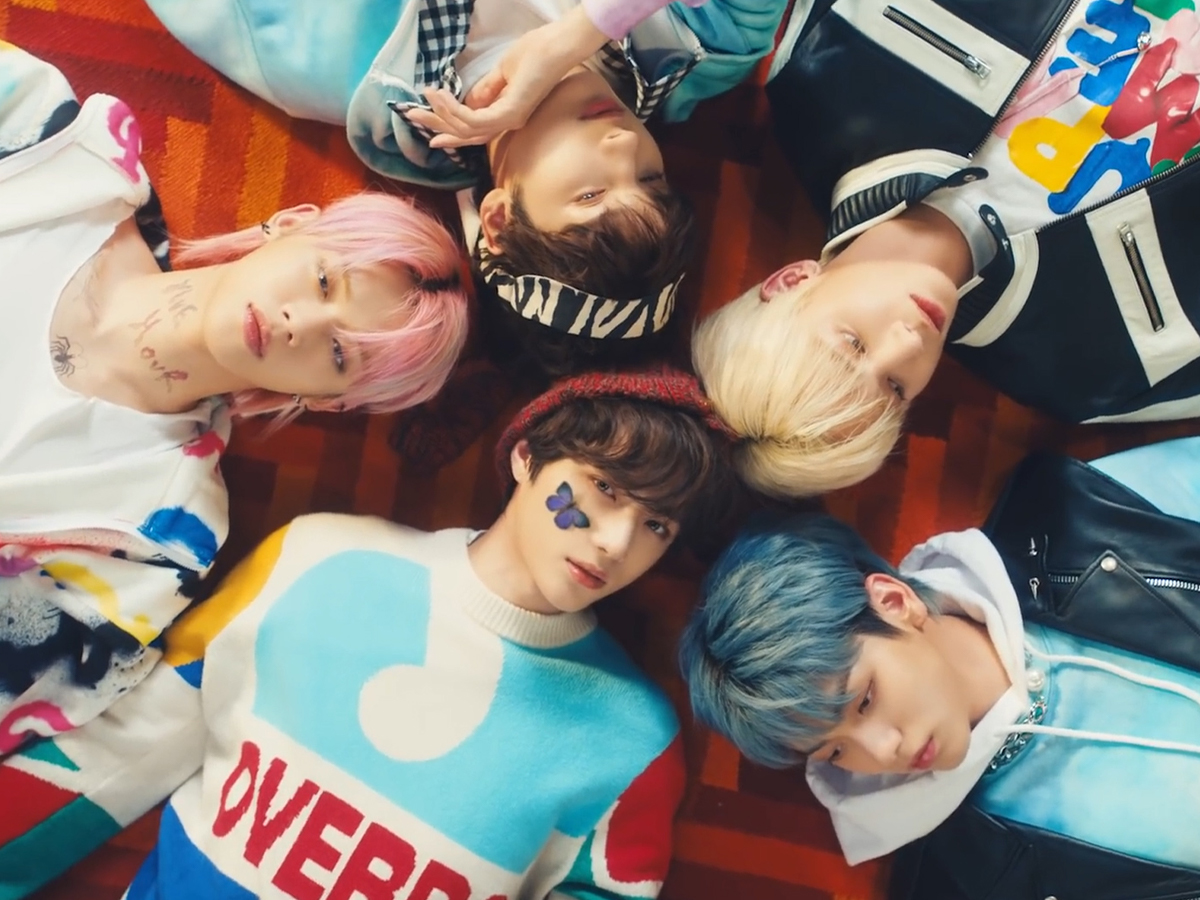
- K-kids_these_days.txt2021.03.22
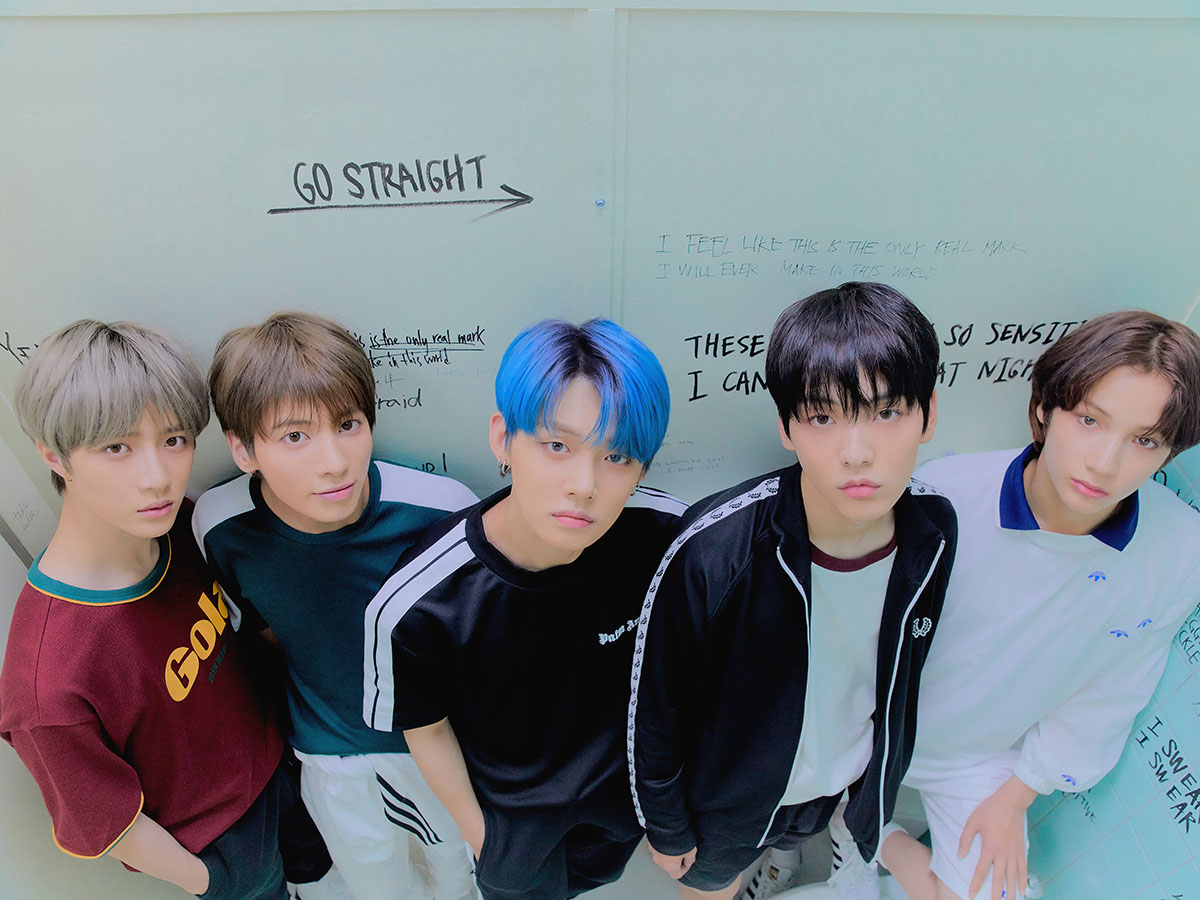
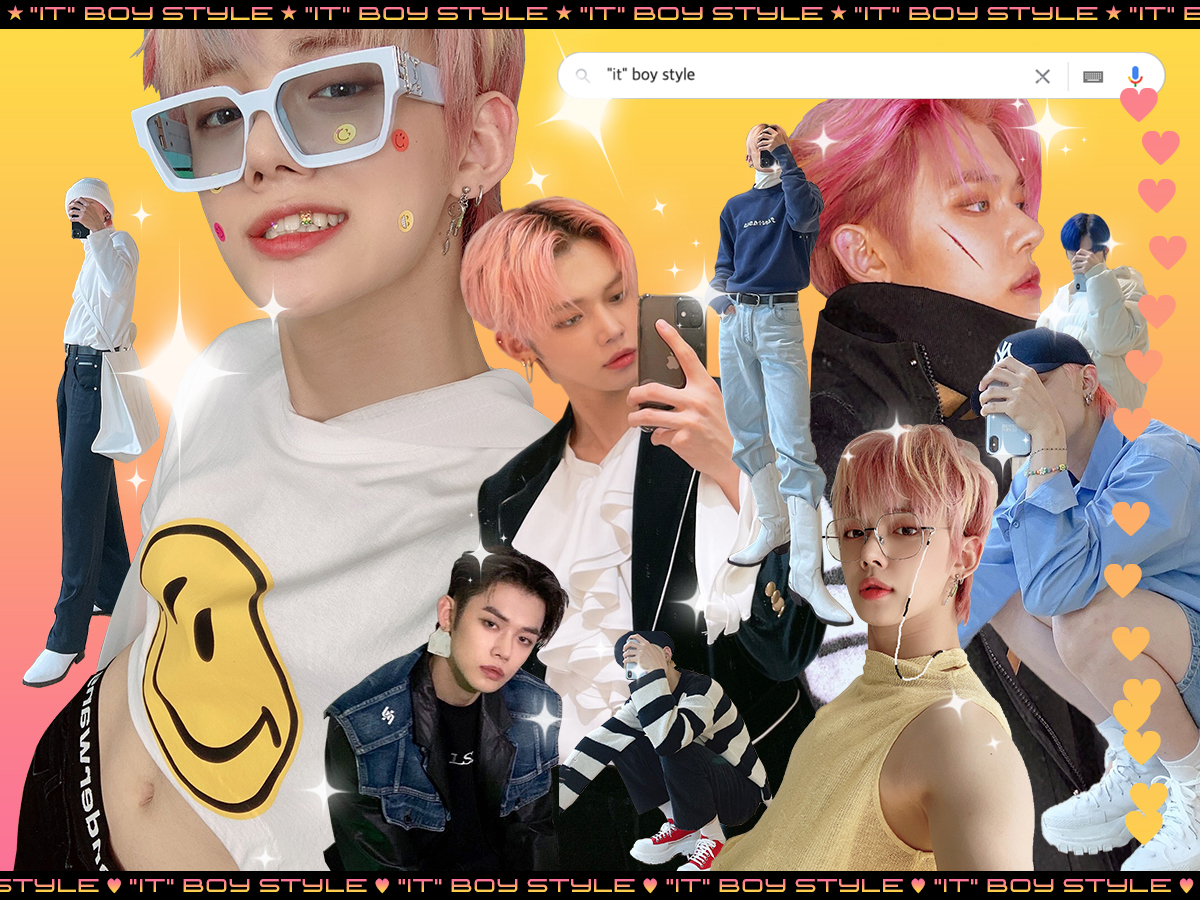
- TXT is advocating Gen Z’s music2021.06.16
